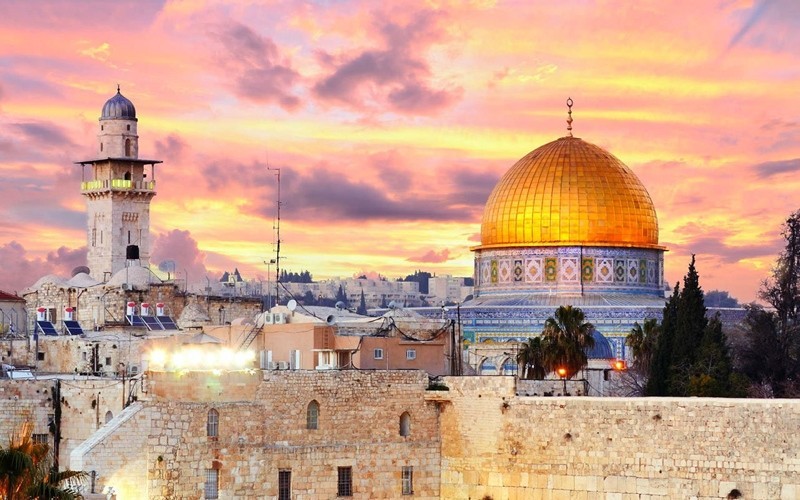مقالة مترجم الي اللغة الانجليزية عن مدينة القدس
تفاصيل العمل
Jerusalem: A City of Rich Heritage and Spiritual Significance
Introduction:
Jerusalem, the capital city of Israel, holds a special place in the hearts of millions around the world. Revered as a holy city by three major religions—Judaism, Christianity, and Islam—Jerusalem's history, cultural heritage, and spiritual significance span thousands of years. In this article, we will explore the unique attributes of Jerusalem, delving into its historical landmarks, religious sites, and the diverse tapestry of its inhabitants.
1. Historical Significance:
Jerusalem boasts a rich and complex history that dates back over 4,000 years. It has been conquered, destroyed, and rebuilt numerous times. The city has witnessed the reign of King David, the construction of Solomon's Temple, the Babylonian exile, and the Roman occupation. Its historical significance lies in its role as a center for worship, trade, and cultural exchange throughout the ages.
1. Religious Landmarks:
Jerusalem is home to numerous sacred sites that hold deep religious significance. The Western Wall, also known as the Wailing Wall, is a revered place of prayer for Jews. The Church of the Holy Sepulchre, believed to be the site of Jesus' crucifixion and resurrection, is a major pilgrimage destination for Christians. The Dome of the Rock, located on the Temple Mount, is a symbol of Islamic architecture and the third holiest site in Islam. These landmarks attract millions of visitors and pilgrims each year.
1. Old City and its Quarters:
The Old City of Jerusalem, a UNESCO World Heritage site, is a captivating labyrinth of narrow streets and ancient architecture. It is divided into four quarters: the Jewish Quarter, the Christian Quarter, the Muslim Quarter, and the Armenian Quarter. Each quarter preserves its unique atmosphere, with religious sites, markets, and vibrant communities coexisting within the ancient city walls.
1. Cultural Diversity:
Jerusalem is a melting pot of cultures, traditions, and languages. The city is home to a diverse population of Jews, Christians, Muslims, and other religious and ethnic communities. The coexistence of these groups creates a vibrant tapestry of customs, culinary delights, and artistic expressions. Visitors can experience the fusion of different cultures through traditional festivals, music, and cuisine.
1. Modern Jerusalem:
Beyond its historical and religious significance, Jerusalem is a thriving modern city. It houses universities, museums, vibrant neighborhoods, and a burgeoning arts scene. The modern skyline blends with ancient landmarks, creating a unique juxtaposition of the old and the new.
Conclusion:
Jerusalem stands as a city of immense historical, cultural, and religious importance. Its ancient past, reflected in its landmarks and diverse communities, continues to shape its present identity. As a symbol of unity and reverence for people of various faiths, Jerusalem remains a destination that inspires awe and reflects the shared heritage of humanity.
